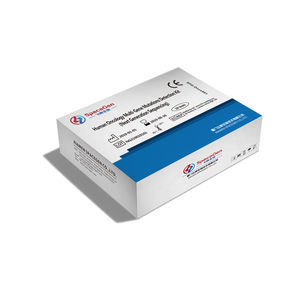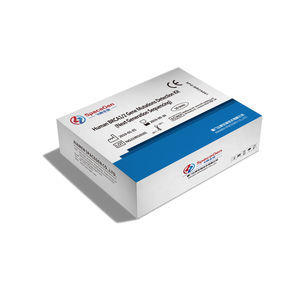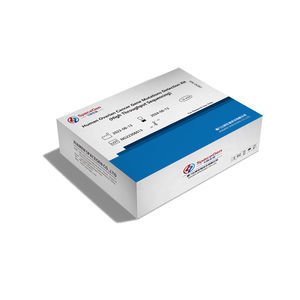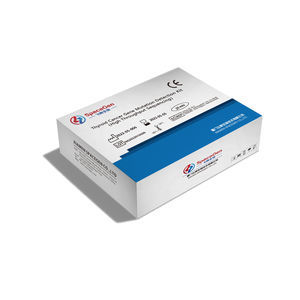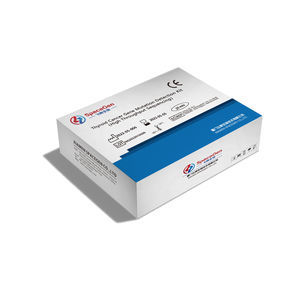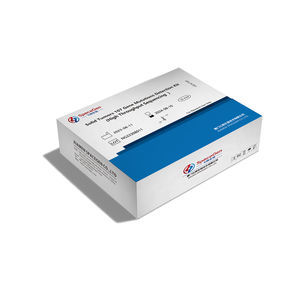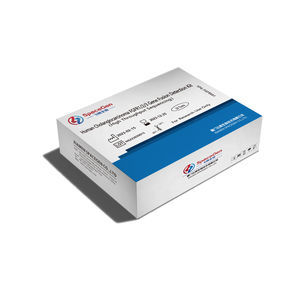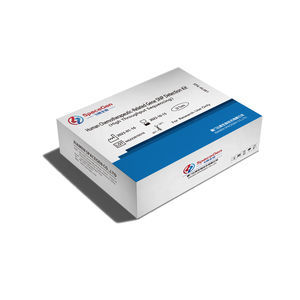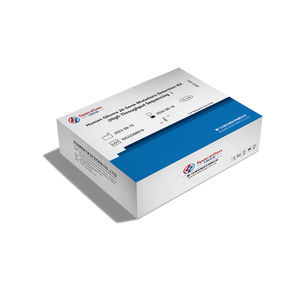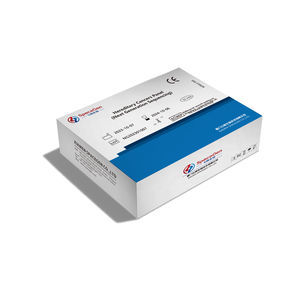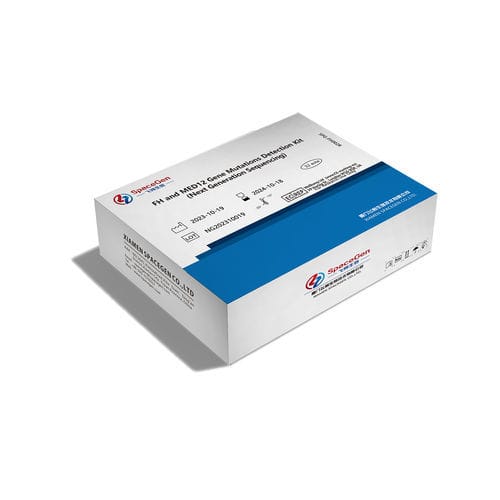

- Company
- Products
- Catalogs
- News & Trends
- Exhibitions
Research detection kit NG202310019for tumour detectionfor genescell
Add to favorites
Compare this product
Characteristics
- Applications
- for research, for tumour detection
- Tested parameter
- for genes
- Sample type
- cell, cutaneous
- Analysis mode
- immunohistochemistry
- Result display time
4 h
Description
Uterine leiomyomas are benign mesenchymal cell tumors of smooth muscle origin, displaying various morphologies, and are the most common benign tumors in women. The incidence in reproductive-aged women can reach up to 25%, and in perimenopausal women, it can be as high as 70% [1]. Most of these lesions are caused by MED12 mutations, with less common pathways involving FH biallelic gene inactivation, as well as chromosomal fragmentation and gene rearrangements [2]. MED12 gene mutations occur in over 70% of uterine leiomyoma patients, with the majority happening in exon 2 [3], and mutations in codon 44 account for more than half (36% to 96%)
HLRCC
FH-deficient type uterine leiomyomas are a rare subtype of uterine leiomyomas, accounting for approximately 0.4% to 1.6% of all uterine leiomyomas. They are associated with germline or somatic mutations in the FH gene. Hereditary leiomyomatosis and renal cell cancer (HLRCC) syndrome are caused by germline mutations in the FH gene, and it is an autosomal dominant inherited disorder characterized by multiple cutaneous leiomyomas, early-onset uterine leiomyomas, and renal cell carcinoma [6]. Since uterine leiomyomas are typically diagnosed early, easily detected, and have a favorable prognosis, they can serve as benign precursor tumors for HLRCC-related kidney cancer.
Relying solely on FH immunohistochemistry can result in the underdiagnosis of some patients, and genetic testing is considered the gold standard for diagnosing FH-deficient type uterine leiomyomas [6]. The FH gene has a total length of approximately 22 kb and is composed of 10 exons.
Catalogs
No catalogs are available for this product.
See all of SPACEGEN‘s catalogsRelated Searches
- Assay kit
- Blood assay kit
- Immunoassay assay kit
- Plasma assay kit
- Infectious disease detection kit
- Analysis software
- Molecular test kit
- Respiratory infection test kit
- Whole blood detection kit
- Optical assay kit
- Clinical assay kit
- Fluorescence assay kit
- Viewer software
- Real-time PCR test kit
- Research assay kit
- Laboratory software
- Windows software
- Laboratory detection kit
- Cell assay kit
- Oncology test kit
*Prices are pre-tax. They exclude delivery charges and customs duties and do not include additional charges for installation or activation options. Prices are indicative only and may vary by country, with changes to the cost of raw materials and exchange rates.


